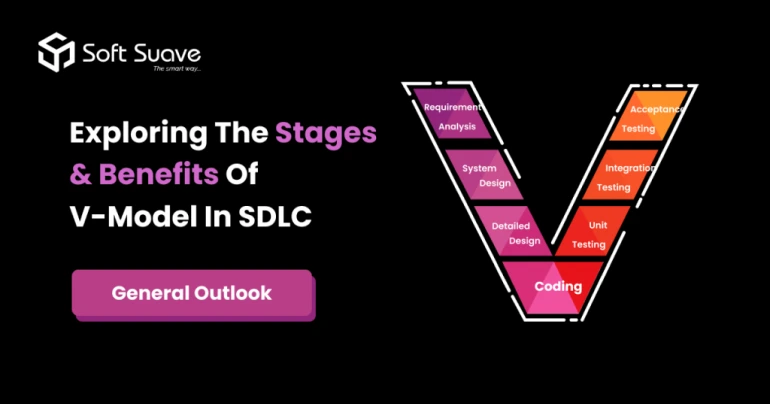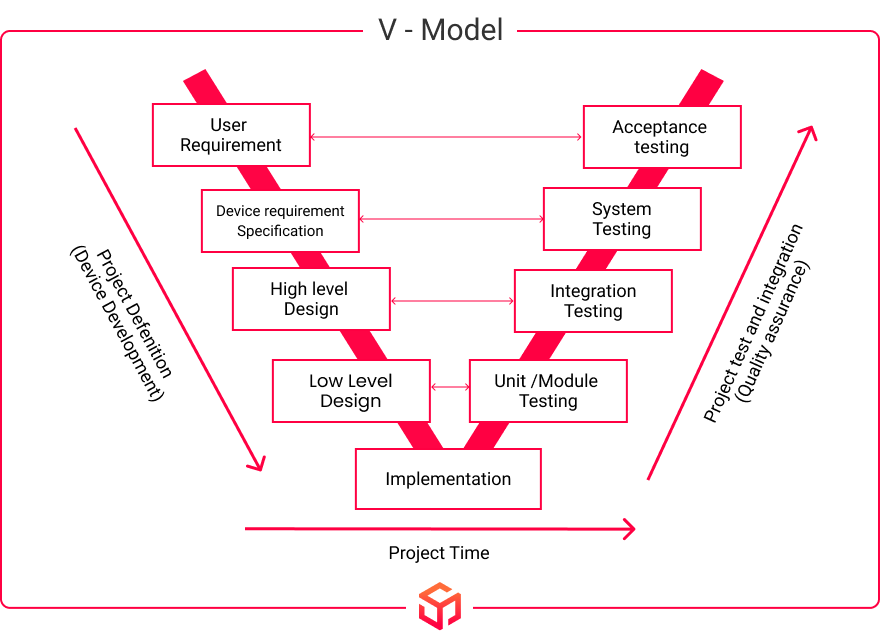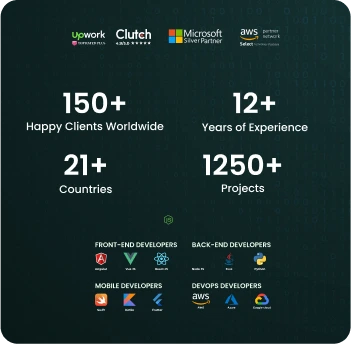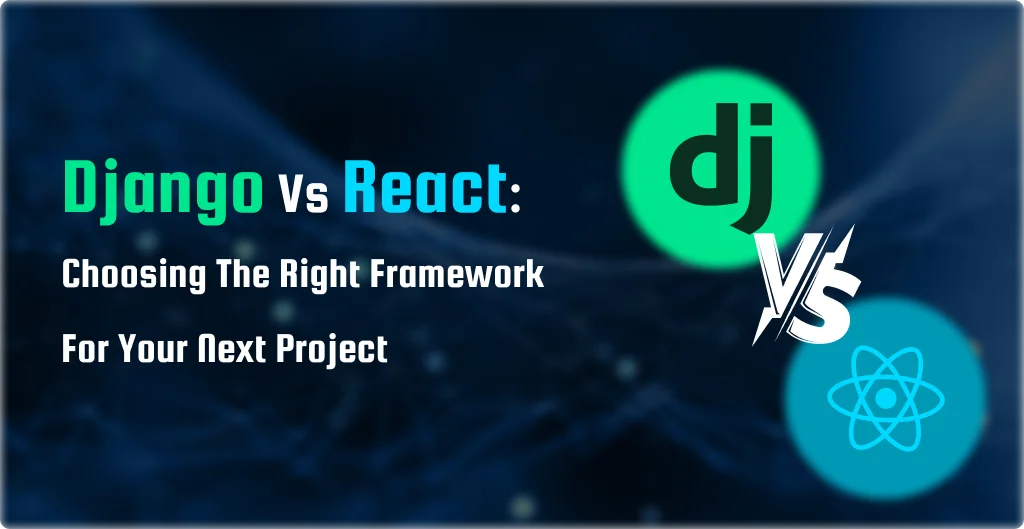Table of Contents
Software development is a complex process that requires a structured approach to ensure quality and efficiency. The Software Development Life Cycle (SDLC) is a method that provides a systematic approach to software development.
The V-Model in SDLC is one of the most popular approaches that provide a comprehensive framework to manage software development.In this article, we will explore the V-Model in SDLC. We will look at its benefits, stages, and how it can help improve software development. So, let’s dive in!
What is the V-Model in SDLC?
The V-Model in SDLC is a software development method that emphasizes the relationship between each stage of the software development process. It is called the V-Model because it represented the development process in a V-shape. The left side of the V represents the planning and design phases, while the right side represents the implementation and testing phases.
The V-Model is a structured approach that ensures software development carried out systematically, and that each stage of the process is well-defined. It provides a framework that ensures that software development meets the required quality standards.
What are the stages of the V-Model in SDLC?
The V-Model in SDLC comprises several stages that are aligned with the software development process. These stages include
Requirements gathering and analysis: This is the first stage of the V-Model in SDLC. It involves gathering and analyzing requirements from stakeholders to define the software development project.
Software design: This stage involves the creation of the software design based on the system design. Wireframing, prototypes, and detailed software design using Figma, or Mockflow are all included in the software design process.
System design: In this stage, we create the system design based on the requirements gathered in the previous stage. The system design includes the architecture, interfaces, and modules of the software.
Looking to Hire Software Developers? Contact Soft Suave.
Implementation:- In this stage, they developed the software based on the software design. We carry out the coding and testing of each module in this stage.
Testing:- This stage involves testing the software to ensure it meets the requirements and specifications. It includes functional testing, integration testing, and system testing.
Deployment:- Once it completed the testing, it deployed the software in the production environment.
Maintenance:- This stage involves maintaining the software to ensure it continues to function as expected.
What are the benefits of using the V-Model in SDLC?
A number of benefits can be obtained by software development teams using the V-Model as part of their Software development lifecycle, including
Improved quality:- The V-Model ensures that each stage of the software development process is well-defined and tested. This helps to improve the quality of the software.
Better communication:- The V-Model provides a framework that ensures better communication between the development team and stakeholders. This helps to ensure that everyone agrees throughout the software development process.
Reduced costs:- The V-Model helps to reduce costs by identifying and fixing issues early in the software development process. This helps to avoid expensive rework later on.
Increased efficiency:- The V-Model provides a structured approach to software development, which helps to improve efficiency and reduce the time to develop software.
Conclusion:
In the software development lifecycle, using the right method is crucial to achieving your goals efficiently and effectively. The V-Model in SDLC is a comprehensive approach that emphasizes testing at every stage and offers benefits such as improved quality, better communication, reduced costs, and increased efficiency. At Soft Suave, we use the V-Model and other methodologies to deliver high-quality software solutions to our clients. Reach us to learn more about our software development services and how we can help you achieve your business objectives.
Are you looking for top-notch software development services?
Our team of experienced developers can help you build high-quality software solutions that meet your business needs.
Frequently Asked Questions (FAQ)
A: The V-Model is suitable for most types of software development projects. However, it may not be appropriate for tiny projects or projects with a very short development cycle.
A: The V-Model ensures that testing carried out at every stage of the software development process. This helps to identify and fix issues early in the development process, reducing the risk of costly rework later on.
A: Yes, the V-Model can adapted to work with Agile development methodologies. However, it may require some modifications to fit the Agile approach.








 8 Years of experience
8 Years of experience



